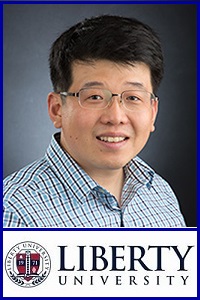Tagged: “anti-bullying forgiveness program”
A School Anti-Bullying Program That Works!
No one argues about the need to stop bullying in schools. Bullying’s adverse effects not only impact the child when the bullying occurs but typically impact a victim’s health and emotions throughout the person’s lifetime (see “The Impact of Bullying” box below).
That reality has become a growing topic of concern in the academic community with bullying being cited as a universal problem in countries around the world. Over the past several decades, literally hundreds of school-wide anti-bullying programs have been developed and implemented. That raises the question, of course: Do school antibullying programs work?
The typical answer from those professionals studying that question is: “Not so well. We need to do better.”
And sure enough, that’s the inauspicious conclusion of a just-completed systematic review of scientific publications covering the past 20 years. According to the study, Whole‐school Antibullying Interventions, a full 50% of all the school programs reviewed failed to “show significant effects on bullying prevalence” or found negative results including an actual increase in bullying.
The study, published in April by the peer-reviewed journal Psychology in the Schools, was conducted by university researchers in Brazil. While their study found that anti-bullying interventions resulted in increased reporting of bullying occurrences (with resultant increases in the use of punitive discipline), at the same time many of the programs failed totally–primarily due to inadequate time for training and implementation as well as lack of support.

Dr. Jichan J. Kim
Those findings come as no surprise to many psychologists. In fact, the report actually documented and reinforced what educational psychologist Dr. Jichan J. Kim first reported more than four years ago in his University of Wisconsin-Madison doctoral thesis: The Effectiveness of a Forgiveness Intervention Program on Reducing Adolescents’ Bullying Behavior.
Dr. Kim’s thesis includes a 29-page literature review in which he documents the unusually large number of research projects demonstrating the ineffectiveness of most school-wide anti-bullying programs including:
- A 2007 review of 45 separate school-based anti-bullying studies involving 34,713 individuals that concluded “the positive changes were too small to be supported as significant;”
- Another 2007 examination of 16 major anti-bullying programs across 11 different countries that showed mixed results with less than half the programs demonstrating desirable effects;
- A 2008 evaluation of 16 studies across 6 nations involving a total of 15,386 K-12 students that showed the interventions tended to influence students’ attitudes and self-perceptions but not their bullying behavior; and,
- Studies completed in 2012, 2014, and 2015 (one involving 560 school psychologists and school counselors) supporting the lack of evidence-based interventions.
Despite all the negative assessments he uncovered, Dr. Kim believes there is one approach that might be effective–helping adolescents exhibiting bullying behavior to forgive those who have offended them in the past. That approach, Dr. Kim says, is still not widely used and is, therefore, still not a compelling component of the scientific literature although he is confident it “can be beneficial.”

Dr. Robert D. Enright
That intervention approach, in fact, is the one advocated in The Anti-Bullying Forgiveness Program developed more than 8 years ago by Dr. Robert Enright, founder of the International Forgiveness Institute. The program not only incorporates lessons-learned from Dr. Enright’s more than 40-years of forgiveness research, it also integrates the scientifically-quantifiable forgiveness process he developed and , perhaps most importantly, it focuses directly on the one doing the bullying.
“Those who bully usually have pent-up anger and as a result they displace their own wounds onto others,” Dr. Enright explains. “Our program is meant to take the anger out of the heart of those who bully so that they no longer bully others.”
Dr. Enright says his research has taught him to take an approach that may seem counter-intuitive today, but will appear obvious to many in the future: “Yes, help the victim, but also help the one who is bullying to get rid of his or her anger, which is fueling the bullying. Those who bully have been victimized by others. Help them to reduce their resentment toward those who were the victimizers and the bullying behavior will melt away.”
- Learn more about Dr. Enright’s Anti-Bullying Forgiveness Program.
- Learn more about Dr. Jichan Kim, an Assistant Professor of Psychology at Liberty University in Lynchburg, VA. (Disclosure: Dr. Enright was Jichan Kim’s graduate school adviser).
- Read a review of Forgiveness Therapy.
- Learn more about the long-term impacts of bullying in the 2014 British Study.
- Learn how bullying statistics compare in your state versus others, with this interactive Bullying-Cyberbullying-Sexting Map of the U.S.
- Learn about bullying and cyberbullying in your country with this interactive International Research on Bullying Map of the World.
“THE ANTI-BULLYING FORGIVENESS PROGRAM” — FREE FOR A LIMITED TIME
October is National Bullying Prevention Month. Initiated in 2006 by the PACER Center, it is the designated 31-day period each year when schools, organizations, and communities across the country–and in more and more countries around the world–join together in their battle to confront and stop bullying and cyberbullying.
As its contribution to that initiative, the International Forgiveness Institute (IFI) is making its groundbreaking guide, The Anti-Bullying Forgiveness Program, available free of charge for a limited time. Developed by Dr. Robert Enright, this program is an invaluable tool for school counselors, social workers, teachers, and homeschooling parents.
Bullying is unwanted, aggressive behavior that involves a real or perceived power imbalance. The behavior is repeated, or has the potential to be repeated, over time. Bulling may be verbal, social (hurting someone’s reputation or relationships), or physical. Cyberbullying is that which takes place over digital devices like cell phones, computers, and tablets–often called “online bullying.”
Bullying is a problem that can derail a child’s schooling, social life, and emotional well-being. According to a report by the National Center for Education Statistics, about 1 of every 5 students ages 12-18 reported being bullied at school during the 2017 school year. While some adults have a tendency to ignore bullying and to write it off as a normal part of life that all kids go through, bullying is a real problem with serious consequences.
According to the U.S. Department of Health and Human Service’s website Stopbullying.gov, being bullied can lead to negative health and emotional issues, including:
- Depression and anxiety, increased feelings of sadness and loneliness, changes in sleep and eating patterns, and loss of interest in activities the person used to enjoy. These issues may, and often do, persist into adulthood.
- Health complaints and mental health issues.
- Decreased academic achievement (both GPA and standardized test scores) and school participation. The bullied are more likely to miss, skip, or drop out of school.
- Negative behavioral changes including substance abuse and, in extreme cases, suicide.
Countless anti-bullying techniques and programs have been developed over the past several years with administrators and teachers reporting varying levels of effectiveness. The IFI program is significantly different than most of those because it is not based on confrontation and/or disciplinary action. Instead, Dr. Enright’s approach focuses on the behavior of the one doing the bullying because “hurt people hurt people.”
That pithy observation is more than a clever phrase; it’s a sad truth. Dr. Enright’s scientifically-conducted research projects have repeatedly confirmed his contention that “hurt people hurt others because they themselves have been hurt. We’ve all been hurt in one way or another and those hurts cause us to become defensive and self-protective. We instinctively may lash out at others so that hurting becomes a vicious cycle full of pent-up anger.”
“Unless we eliminate the anger in the hearts of those who bully, we will not eliminate bullying.”
Dr. Robert Enright
Forgiveness can be a powerful way of reducing pent-up anger, Dr. Enright says about his strategy of incorporating forgiveness education into his anti-bullying approach.
“It is our contention that bullying starts from within, as anger, and comes out as displaced anger onto the victim,” according to Dr. Enright. “Forgiveness targets this anger and then reduces it, thus reducing or eliminating the displaced anger which comes out as bullying.”
The Anti-Bullying Forgiveness Program is for children in grades 4 (age 9) through grade 9 (age 14). It includes 8 lessons, each taking from 30 to 60 minutes. All of the material needed to teach these lessons is self-contained in this guide; there are no other textbooks or materials to purchase. The manual is now being offered free for a limited time and is available only in the electronic version. To order, email your request to the IFI Director at director@internationalforgiveness.com. Indicate whether you would like the Standard or Christian version. ⊗
Additional Information:
- Learn more about The Anti-Bullying Forgiveness Program developed by Dr. Robert Enright that employs Forgiveness Therapy principals.
- In 2014, the Centers for Disease Control and the Department of Education released the first federal uniform definition of bullying.
- View the most-recent National Statistics on Bullying.
- Read a 10-page report, The Relationship Between Bullying and Suicide, by the Centers for Disease Control and Prevention.
- Search the current State Anti-Bullying Laws and Regulations for each of the 50 states.
- New research defines the Life-Long Effects of Childhood Bullying.
Why Our Anti-Bullying Forgiveness Program Matters
“Bullying will not be tolerated in this school.”
“You are entering a no bullying zone.”
Consciousness raising is good precisely because it challenges each of us to be our best self, to do good for others.
Yet, sometimes some students are so emotionally wounded that their anger overwhelms the attempt at consciousness raising. The students are so very wounded that they cannot listen well. Some are so wounded that they refuse to listen. Even others are so mortally wounded that they find a certain pleasure in inflicting pain on others. It is when it gets to that point—others’ pain equals pleasure for the one inflicting it—that we have a stubborn problem on our hands. No signs, no consciousness raising, no rally in the gym, no pressure to be good is going to work…..because the gravely wounded student is now beyond listening.
Yet, we have found a hidden way to reverse the trend in those who are so hurting that they derive pain from hurting others. It is this: Ask the hurting students, those labeled so often as bullies, to tell their story of pain, their story of how others have abused them.
You will see this as the rule rather than the exception:
Those who inflict pain over and over have stories of abuse toward them that would make you weep. In fact, we have seen the weeping come from the one who has bullied others, the one who has inflicted serious pain onto others. He wept because, as he put it, “No one ever asked me for my story before.” His story was one of cruel child abuse from an alcoholic father who bruised him until he bled. And no one ever asked him about this. And so he struck out at others. Once he told his story, he began to forgive his father and his pain lessened and thus his need to inflict pain on others slowly melted away.This is what our Anti-Bullying Forgiveness Program does. It aids counselors and teachers in bringing out the stories in the pain-inflictors so that their own pain dramatically decreases. As this happens, through forgiveness, bullying behavior is rendered powerless……because in examining their own hurt they finally realize how much hurt they have inflicted…..and with their own emotional pain gone, they have no desire to live life like this any more.
Come, take our anti-bullying curriculum and save the life of at least one child and help prevent inflicted pain on countless others.
Robert



